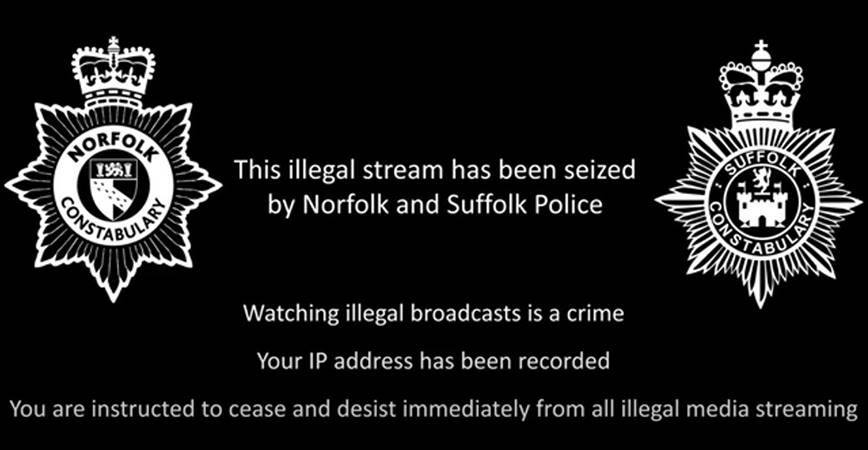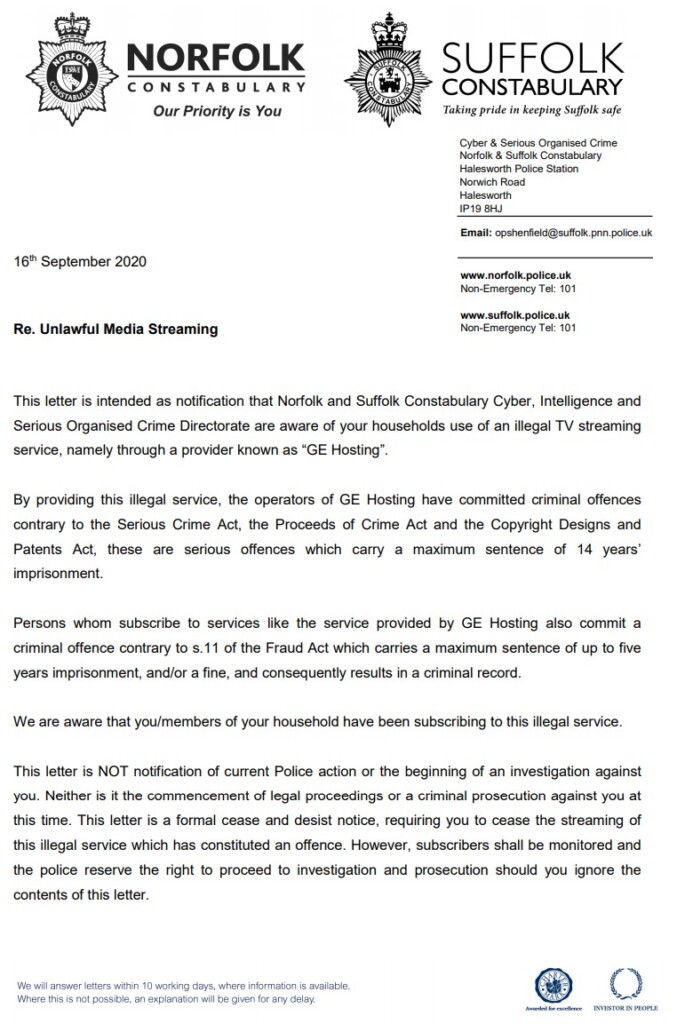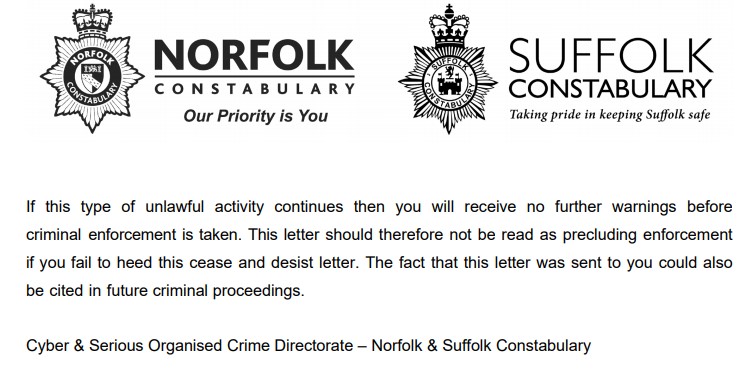
Police in Norfolk and Suffolk Engage in Scare Tactics Against IPTV Subscribers
- The Norfolk and Suffolk police are the world’s first to send letters of warning to IPTV users.
- The police say that accessing pirate IPTV services may incur imprisonment sentences of up to 14 years.
- The subscriber information may come from a recent bust of an IPTV service operator in the area.
The police in Norfolk and Suffolk, in East UK, are sending letters of warning to IPTV customers in the area, calling them to stop illegal streaming. This comes two months after the Suffolk police arrested a 24-year-old operator of a pirate IPTV platform as well as another four people who were linked with the case as resellers. In addition to the letters, the “GE Hosting” service has also been taken down, and now a message of seizure is being served to the visitors.
Source: TorrentFreak
The police have seized “GE Hosting” equipment, which may be linked with the July bust, and they’ve found subscriber IP addresses and other details. This enabled the authorities to send the warning letters to these people, warning them that according to the provisions of the Crime Act and the Copyright Designs and Patents Act, pirating content online may carry a maximum sentence of 14 years in prison. An indication that the police may be basing their action on the knowledge of IP addresses, is the mention to “members of the household”.
Source: TorrentFreak
So, if “GE Hosting” has been seized, and if these letters aren’t notices of formal action like the launch of an investigation or criminal prosecution, then what’s the point? Possibly, it’s to help make a case against the use of IPTV boxes and stream decoders in general.
The police want to make it clear that they see any kind of deployment of these products as participation to ‘fraud’, so they want to prevent the “GE Hosting” subscribers from feeling free to jump to another IPTV service. This bouncing has been a problem for the law authorities, as the audience simply moves around, fueling new streaming platforms, and perpetuating the problem indefinitely.
Source: TorrentFreak
Instead of going after IPTV service operators, who may often lie outside that authority of the investigating agency, wouldn’t it be better to stop the source of money that creates this problem in the first place?
This could be the actual goal of the Norfolk and Suffolk police, but again, it’s still unclear. Maybe they just want to be pioneers or they want to create a buzz around the matter, but it sure looks and sounds like scare tactics. The fraud accusations don’t stand very strongly in the context they are delivered in, and the 14 years of prison for accessing streaming services is way out of proportion.








